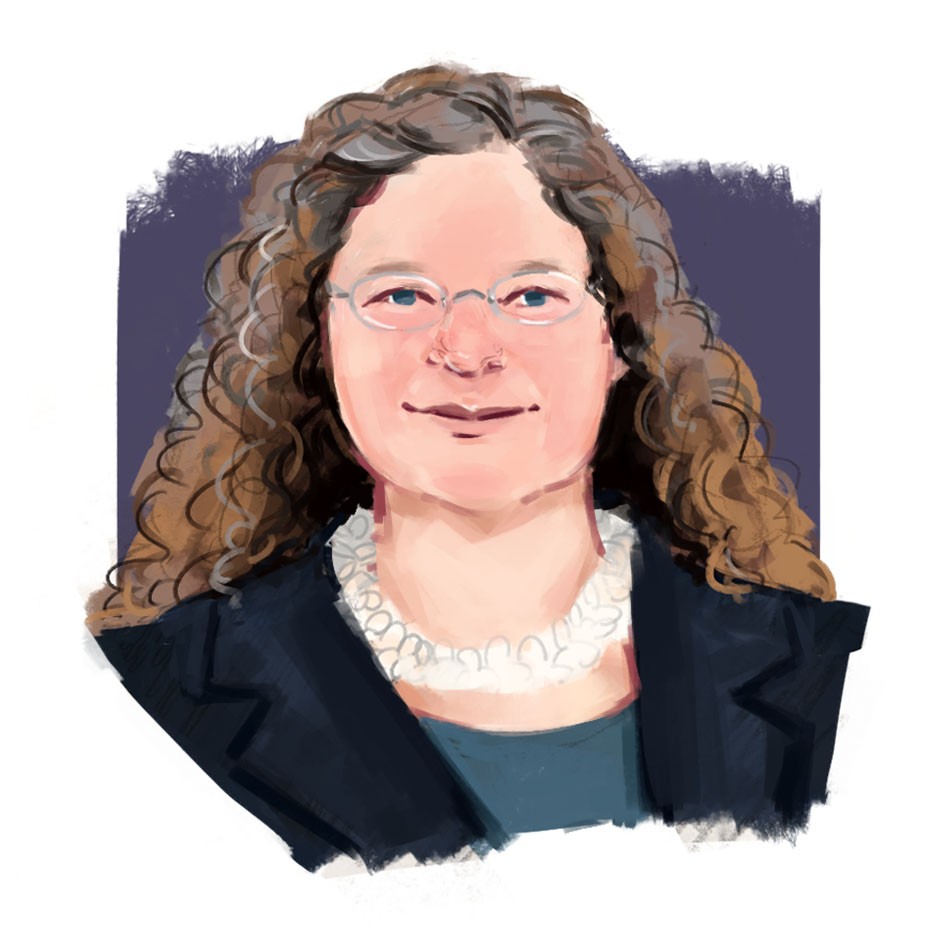Rachel Croson liked Star Trek growing up, but while most of her friends were in love with Captain Kirk, she was drawn to Mr. Spock. His logical and analytics-based approach appealed to her.
Economics intrigued her for the same reasons. The problem she soon realized was that economics didn’t do a good job of explaining decisions that were more intuitive and ruled by emotion — decisions Captain Kirk would make.
While Croson is data-driven and fact-oriented, she said she likes to view economics in an interdisciplinary way, taking these human realities into account. She said this interdisciplinary mindset will be an asset when she starts her new job as the University of Minnesota’s next executive vice president and provost.
After publishing her hundredth research paper, Croson said she wondered if there was something she could do that would create more social value than writing paper number 101. This led her to become an administrator.
“Maybe there was a way to take what I knew … and help a lot of people publish paper one,” Croson said. “Maybe I could help a lot of people become better teachers or better Ph.D. student mentors.”
Two years as a division director at the National Science Foundation allowed her to test the waters of being an administrator, and return to an academic role if she didn’t like it.
She liked it, and since then has served in various administrative roles, currently as dean of the College of Social Science at Michigan State University. Her time at Michigan State has seen a lot of leadership turnover, part of the fallout of the Larry Nassar scandal, which put more responsibility on the deans.
“She has been a pretty amazing leader throughout that time, somebody I have come to really respect and admire,” said Mark Largent, interim associate provost for undergraduate education at Michigan State.
Largent said Croson is not a “technocrat,” rather her strong focus on outcomes and the inclusivity of her decision-making process are why she has been a good leader.
“[Croson] is one of those people who doesn’t dominate conversations, but when she talks, everybody listens,” Largent said. “When you have a group of smart people together, the ones who are capable of talking less and saying more tend to be the ones that very quickly become trusted.”
This is not just felt among her peers, as Croson has built relationships with students at Michigan State as well. Zach Brown, a recent Michigan State graduate who said he got to know Croson as part of a scholar’s program for the college, said she is interested in what students care about.
“Her and I had quite a few deep thoughts about what my career path would be and how it relates to a variety of topics that are going on in the world around us,” Brown said.
Croson said she was drawn to Minnesota because of the strong value of research and its land grant mission. She said she is also excited about being a part of a University with system campuses.
She spent time in the University of Texas system, but not at the flagship school. Croson said in Texas she saw how contributions of branch campuses can sometimes go “unleveraged.”
“I think there’s a real opportunity with the University of Minnesota system to think a little strategically about what those campuses bring, what they contribute, what their role is, and how we can work better together,” Croson said.
The University being a land grant institution is important for Croson because of the access to education they provide to people of all income levels.
“If you think about the challenges our country is facing now with social mobility and high levels of income inequality, I think that kind of public education is exactly what we need to double down on,” Croson said.
A reality of being a land grant school means requesting money from the Legislature. Croson said her experience securing funding for the National Science Foundation from Congress could be an asset in St. Paul. Talk of funding from the state is often closely followed by talk of spending, a conversation Croson said she is eager to have.
Pending Board of Regents approval, Croson will start her new role as the chief academic officer of the system at the end of March.
“I am envious of the University of Minnesota for hiring her,” Largent said. “I think she is going to be a wonderful provost.”







